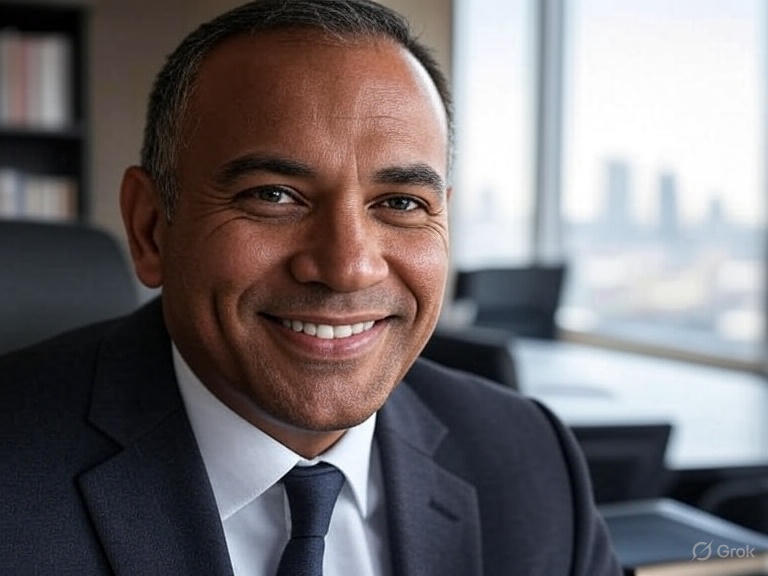A Chartered Accountant in Nigeria is a professional accountant who has undergone rigorous training, passed qualifying examinations, and fulfilled the ethical and practical requirements set by a recognized accounting body such as the Institute of Chartered Accountants of Nigeria (ICAN) or Association of National Accountants of Nigeria (ANAN). These professionals are legally empowered to perform accounting, auditing, financial advisory, taxation, and consultancy services both in the public and private sectors.
In Nigeria, the title “Chartered Accountant” is protected by law and recognized under the ICAN Act of 1965, which gives legal backing to ICAN as the body that regulates the profession. Anyone who refers to themselves as a Chartered Accountant without qualifying through a recognized professional body can face legal sanctions.
Chartered Accountants play pivotal roles in ensuring financial integrity, promoting transparency in financial reporting, and upholding accountability in both the private and public sectors. Their work impacts areas such as:
-
Internal and external auditing
-
Financial planning and analysis
-
Management accounting
-
Tax planning and compliance
-
Corporate governance and forensic accounting
In addition, their services are crucial to multinational firms, startups, government agencies, and nonprofit organizations. Many also become successful entrepreneurs, university lecturers, and policy advisors.
Globally, being a Chartered Accountant aligns Nigeria with international standards, comparable to the CPA in the U.S., ACA in the U.K., or CA in Canada and India. This professional title offers Nigerians not only local credibility but also global portability.
For a developing economy like Nigeria, the role of Chartered Accountants is vital in achieving fiscal discipline, revenue generation, and anti-corruption. As Nigeria’s economy diversifies beyond oil, the demand for competent accountants continues to grow rapidly.
In summary, a Chartered Accountant in Nigeria is not just a bookkeeper. They are critical thinkers, financial strategists, and guardians of public trust, qualified to offer professional advice that shapes business decisions and government policies.
Table of Contents
2. Why You Should Consider Becoming a Chartered Accountant in Nigeria
Becoming a Chartered Accountant in Nigeria is one of the most rewarding professional decisions a student or job seeker can make in 2025. Beyond the prestige and recognition, the career opens a wide range of lucrative opportunities, both locally and internationally.
🏆 1. High Earning Potential
Chartered Accountants are among the best-paid professionals in Nigeria. Depending on qualifications, experience, and industry, monthly salaries can range from ₦150,000 for entry-level roles to over ₦1,000,000 for senior positions like CFOs and financial controllers. Accountants working with international firms or in oil & gas, banking, fintech, or consulting often earn significantly more.

🌐 2. Global Recognition and Opportunities
ICAN-certified accountants enjoy recognition across Africa and in countries like the UK, Canada, and UAE, especially when combined with certifications like ACCA, CFA, or CPA. Some employers abroad now accept ICAN certificates as part of their hiring requirements, especially when paired with a university degree.
💼 3. Diverse Career Options
Chartered Accountants can work in:
-
Audit firms (e.g., PwC, KPMG, Deloitte, EY)
-
Commercial banks and microfinance institutions
-
Government agencies (e.g., FIRS, CBN, EFCC, Ministry of Finance)
-
NGOs and donor-funded projects
-
Corporate organizations in roles like Financial Analyst, Tax Consultant, or Internal Auditor
📊 4. Pathway to Leadership Roles
Many CEOs and CFOs in Nigeria are Chartered Accountants. The certification builds strong financial literacy and decision-making skills, positioning professionals for top managerial roles.
📚 5. Academic and Teaching Opportunities
With a Chartered Accountant certification, especially paired with a postgraduate degree, you can lecture in Nigerian universities or polytechnics and contribute to the next generation of professionals.
🧠 6. Strong Ethical Training and Discipline
ICAN instills a high sense of ethics, discipline, and responsibility. This is essential in a country where financial misconduct is a major concern. Accountants trained by ICAN are held to global ethical standards in practice.
💡 7. Entrepreneurship and Consulting
With the skills acquired, many Chartered Accountants become successful consultants and entrepreneurs, running firms that offer financial management, tax filing, business registration, and audit services to SMEs and large corporations.
💹 8. Public Sector Reform Participation
Chartered Accountants also play important roles in strengthening public finance, budgeting, procurement, and accountability systems. Agencies like the Office of the Accountant-General of the Federation (OAGF) and Bureau of Public Procurement (BPP) rely on their expertise.
🌟 Real-Life Success Examples:
-
Dr. Ngozi Okonjo-Iweala (Former Nigerian Finance Minister, WTO DG) worked with top accountants during her reforms.
-
Seyi Bickersteth, a late renowned chartered accountant, served as Chairman of KPMG Africa.
-
Many state finance commissioners, auditors-general, and DGs of budget have an ICAN or ANAN background.
In short, becoming a Chartered Accountant gives you economic security, career flexibility, global mobility, and leadership opportunities, making it one of the smartest moves in today’s job market.
3. Key Professional Bodies for Accountants in Nigeria
🇳🇬 1. ICAN (Institute of Chartered Accountants of Nigeria)
Founded in 1965 through an Act of Parliament, ICAN is the most recognized and dominant accounting body in Nigeria. It is a member of international organizations like:
-
International Federation of Accountants (IFAC)
-
Pan African Federation of Accountants (PAFA)
-
Association of Accountancy Bodies in West Africa (ABWA)
ICAN certifies candidates as ACA (Associate Chartered Accountant) and FCA (Fellow Chartered Accountant). It runs two routes:
-
ATSWA for SSCE/ND holders
-
Professional Level for graduates (HND/BSc)
ICAN maintains high ethical standards, enforces discipline, and updates its syllabus regularly to align with international standards.
🇳🇬 2. ANAN (Association of National Accountants of Nigeria)
Founded in 1979 and chartered in 1993, ANAN also offers professional accounting certification, mostly for those who pass through its Nigerian College of Accountancy in Jos. Its members also bear the title Certified National Accountant (CNA).
ANAN is known for its structured academic training and supports continuous professional development. Though not as dominant as ICAN in the private sector, it is widely recognized in the public sector and government institutions.
🌍 3. Global Equivalents and Alternatives
| Country | Qualification | Body |
|---|---|---|
| United Kingdom | ACA | ICAEW |
| USA | CPA | AICPA / NASBA |
| Canada | CPA Canada | Chartered Professional Accountants Canada |
| India | CA | ICAI |
| Australia | CA ANZ | Chartered Accountants ANZ |
| Pakistan | CA | ICAP |
Some Nigerian students pursue ACCA, CIMA, or CPA for international recognition. ICAN also has mutual recognition agreements (MRAs) with some international bodies, allowing members to fast-track global qualifications.
⚖️ ICAN vs ANAN – Which Should You Choose?
| Feature | ICAN | ANAN |
|---|---|---|
| Recognition | Higher in private sector | Higher in public sector |
| Entry Paths | ATSWA & Direct entry | Must attend Nigerian College |
| Global Acceptance | Widely accepted worldwide | More local, fewer international MRAs |
| Membership Title | ACA / FCA | CNA |
For most students aiming at private sector jobs, multinationals, and global careers, ICAN is often the preferred route. However, ANAN is equally valuable, especially for those interested in government work.
Educational Pathways to Becoming a Chartered Accountant
There are several ways to become a Chartered Accountant in Nigeria, depending on your educational background, work experience, and career goals. ICAN provides flexible routes to accommodate both school leavers and university graduates.
🎓 A. Minimum Entry Requirements
Regardless of your route, you must have at least:
-
Five (5) credits in SSCE, NECO, GCE or WAEC (including English Language and Mathematics, and at least one business-related subject such as Accounting, Commerce, or Economics).
This is the basic requirement for registering under the ATSWA pathway.
🧩 B. The ATSWA Route (Accounting Technician Scheme West Africa)
This is the most suitable path for school leavers, polytechnic students, OND holders, or individuals without a degree. ATSWA is a three-level program designed to prepare students for the ICAN Professional Examination.
Structure of ATSWA:
Level 1:
Basic Accounting Processes
Business Law
Economics
Level 2:
Principles of Auditing
Public Sector Accounting
Cost Accounting
Level 3:
Management
Information Technology
Taxation
After passing all three levels, candidates receive the AAT (Associate Accounting Technician) certificate, making them eligible to enter the ICAN Professional Level at a higher starting point (exemption from Foundation).
This route is ideal for young school leavers or those who want a progressive, step-by-step path into the accounting profession.
🎓 C. Direct Professional Entry Route (Graduate Route)
If you hold a BSc or HND in Accounting or related fields, you can register directly into the ICAN Professional Program.
Eligible degrees include:
-
Accounting
-
Economics
-
Banking and Finance
-
Business Administration
-
Insurance
-
Actuarial Science
Graduates from non-accounting fields like Engineering, Sociology, or Education are also accepted, but may have to take more foundation-level papers unless exemptions apply.
University graduates must:
-
Register online via icanportal.org
-
Submit academic credentials and NYSC discharge/exemption
-
Pay registration fees and receive a Student Registration Number
🌍 D. Foreign & Alternative Routes
For Nigerians who have foreign qualifications or certifications such as:
-
ACCA (UK)
-
CPA (USA)
-
CA (India, South Africa)
-
CIMA (UK)
ICAN offers mutual recognition arrangements (MRA) or conversion exams, allowing such professionals to join ICAN by writing just a few selected papers, especially in Nigerian Taxation, Public Sector Accounting, or Law.
This route is ideal for returnee Nigerians or internationally certified professionals who want Nigerian professional recognition.
5. Step-by-Step Guide to Registering for ICAN in Nigeria
The ICAN registration process is user-friendly and fully online, with specific steps for ATSWA and Professional routes.
🖥️ A. For ATSWA (Technician) Candidates
Step 1: Visit icanportal.org
-
Navigate to the ATSWA Registration section.
Step 2: Fill in your bio-data
-
Name, email, phone number, and date of birth.
Step 3: Upload required documents
-
SSCE result or school testimonial
-
Passport photograph (white background)
Step 4: Pay the registration fee
-
Pay using a bank payment or online payment system (Remita).
-
Current fee: ₦7,000 – ₦10,000 (subject to change)
Step 5: Submit and Print
-
Print your application form and payment receipt
-
Your student registration number will be issued within 7–10 working days.
🎓 B. For Professional-Level Candidates (Graduate Entry)
Step 1: Go to icanportal.org
-
Click on Professional Student Registration
Step 2: Create your student account
-
Input name, email, and phone number.
Step 3: Upload credentials
-
University or polytechnic degree certificate
-
NYSC certificate or exemption letter
-
SSCE result
-
Passport photo (white background)
Step 4: Pay registration fee
-
Approximately ₦9,500 to ₦11,500 depending on your documents
-
Pay via online gateway or through the bank
Step 5: Wait for confirmation
-
After submission and approval, ICAN sends a registration number via email or portal login
-
You can then order your study packs, join a tuition center, and prepare for exams.
📢 Key Tips:
-
Use a valid email and phone number that you check regularly.
-
All uploads must be scanned clearly and legibly.
-
If any document is rejected, ICAN will email you for clarification.
6. Understanding the ICAN Exam Structure
The ICAN Professional Examination is structured into three levels that test both foundational and advanced knowledge of accounting and finance.
📘 A. Foundation Level
(For graduates without ATS or accounting background)
Courses:
-
Financial Accounting
-
Business Management & Finance
-
Business Law
-
Economics
-
Quantitative Techniques
-
Information Technology
This level builds theoretical understanding of accounting principles and business fundamentals.
📗 B. Skills Level
Courses:
-
Financial Reporting
-
Performance Management
-
Public Sector Accounting & Finance
-
Taxation
-
Management, Governance, and Ethics
-
Audit & Assurance
This level focuses on intermediate and practical skills in areas like auditing, tax, and financial analysis.
📙 C. Professional Level
Courses:
-
Corporate Reporting
-
Advanced Audit & Assurance
-
Strategic Financial Management
-
Strategic Management
-
Case Study (compulsory capstone paper)
The Case Study evaluates the candidate’s ability to apply knowledge across disciplines in a real-world business scenario.
📊 D. Pass Mark and Grading
-
Each subject is graded over 100%.
-
Minimum pass mark per subject: 50%
-
Results are released about 6–8 weeks after the exam period.
🧠 E. ICAN Ethics and Professionalism Course
Before qualifying, candidates must complete:
-
Ethics and Integrity module
-
Continuing Professional Education (CPE) course
These modules ensure professional conduct, ethical responsibility, and lifelong learning.
📅 Exam Timeline (2025)
-
ICAN exams are conducted three times a year: March, July, and November
-
Registration closes about one month before the exam date
-
Venue: CBT centers and paper-based centers across Nigeria
7. Tips and Strategies to Pass ICAN Exams on First Sitting
The ICAN exams are professional and rigorous. However, with the right strategies, it is very possible to pass all levels on your first attempt. Thousands of candidates do it each year—not because they are geniuses, but because they have a plan.
Here are proven strategies to increase your chances of success:
📅 A. Develop a Personal Study Timetable
ICAN has a comprehensive syllabus, and each paper demands deep understanding. Create a timetable that covers:
-
Daily reading (2–3 hours if you’re working)
-
Weekend revision and practice
-
Mock exams every two weeks after the first month of study
Make it realistic and stick to it religiously. Don’t wait until the exam timetable is out before you start.
📘 B. Use the Right Study Materials
Avoid random or outdated materials. Stick with:
-
ICAN-approved Study Packs
-
Past Questions and Examiner Reports
-
Recommended textbooks
-
Video tutorials (YouTube has great ICAN-dedicated tutors)
You can also find free PDF study packs and summarized notes from credible ICAN Telegram and WhatsApp groups.
👩🏫 C. Enroll in a Good Tuition Centre
Self-study works, but professional coaching gives structure and motivation. Look for:
-
Tutors with proven ICAN success
-
Access to mocks and group discussions
-
Real-life explanations with practical examples
Top ICAN centers in Nigeria include Synergy Professionals, Diamond Tutors, Lecture Room, and Knack Training.
🧠 D. Practice Past Questions Extensively
Practicing past ICAN questions helps you understand:
-
Examiner patterns
-
Time management
-
Expected answers (format and depth)
Some students make the mistake of reading without practicing. You should be able to complete a full paper in 2–3 hours under exam conditions before your exam day.
🛠️ E. Understand the Marking Scheme
ICAN exams are not just about what you know, but how you write:
-
Use headings and subheadings
-
Be concise and structured
-
Show workings for numerical questions
-
Don’t leave questions blank—always attempt
🫂 F. Join an ICAN Study Group
This helps you:
-
Stay motivated and accountable
-
Get help on difficult topics
-
Share resources like notes and question banks
Be active in at least one WhatsApp or Telegram ICAN group.
🚫 G. Avoid Last-Minute Rush
Studying for ICAN is a marathon, not a sprint. Start preparing 3–4 months before the exam to avoid anxiety, burnout, and failure.
📌 H. Bonus Exam-Day Tips
-
Arrive at least one hour before time
-
Bring all required documents: printout, ID, calculator
-
Stay calm—treat each question like a client request
8. Costs Involved in Becoming a Chartered Accountant
Becoming a Chartered Accountant in Nigeria involves financial investment in registration, tuition, exams, and induction. Here’s a breakdown of typical costs as of 2025:
🧾 A. ICAN Registration Fees
| Entry Route | Amount (₦) |
|---|---|
| ATSWA | ₦7,000–₦10,000 |
| Professional Level | ₦9,500–₦11,500 |
This includes administrative fees, student kits, and portal access.
📚 B. Tuition Centre Fees
Tuition fees vary by location and level:
-
ATSWA classes: ₦15,000–₦30,000 per level
-
Professional level classes: ₦25,000–₦70,000 depending on number of papers and center
Some premium centers also charge for mock exams, revision classes, and extra materials.
📖 C. Study Packs and Materials
-
Study packs: Usually free or low-cost when registered
-
Textbooks (optional): ₦3,000–₦8,000 per course
-
Soft copies and PDFs are available online for free
🧪 D. Examination Fees (Per Diet)
| Level | Per Paper (₦) | Total (6 papers max) |
|---|---|---|
| ATSWA | ₦6,000–₦7,000 | ₦18,000–₦21,000 |
| Professional Level | ₦20,000–₦25,000 | ₦60,000–₦75,000 |
Note: You can register for fewer papers per diet depending on your preparation.
🧾 E. Induction and Membership Costs
Upon passing all levels:
-
Induction fee: ₦120,000 – ₦150,000
-
Annual dues: ₦3,000 – ₦5,000 (for ACA)
This includes training on ethics, CPE modules, and official certification.
💡 F. Total Estimated Cost
| Item | Estimated Total (₦) |
|---|---|
| Registration | ₦10,000 |
| Tuition & Study Materials | ₦150,000 – ₦300,000 |
| Exam Fees (all levels) | ₦100,000 – ₦200,000 |
| Induction & Membership | ₦150,000 |
| Total | ₦400,000 – ₦700,000 |
Note: Costs vary based on location, number of attempts, and how many subjects you combine per diet.
💰 Tips to Reduce Costs
-
Apply for ICAN scholarships (especially for university students)
-
Join online tuition platforms or use free YouTube channels
-
Form group study circles to split costs of textbooks and mock exams
9. Life After Becoming a Chartered Accountant in Nigeria
Once you complete all exams, undergo ethics training, and are inducted, you earn the prestigious ACA (Associate Chartered Accountant) designation. This opens a whole new world of professional possibilities.
🧑💼 A. Career Roles You Can Occupy
-
Auditor (Internal/External)
-
Tax Consultant
-
Financial Analyst
-
Chief Financial Officer (CFO)
-
Budget Analyst
-
Forensic Accountant
-
Finance Manager
-
Lecturer/Trainer
-
ERP & Accounting Software Consultant
Your ICAN certificate proves you have technical, ethical, and strategic financial skills.
🌍 B. Working in International Firms
Top accounting and audit firms known as the Big 4 often recruit ICAN members:
-
PwC (PricewaterhouseCoopers)
-
KPMG
-
Deloitte
-
Ernst & Young (EY)
These firms value ICAN for its depth, especially when combined with soft skills, tech knowledge, and global exposure.
💼 C. Government and Public Sector Jobs
Chartered Accountants are also in high demand by:
-
Federal Inland Revenue Service (FIRS)
-
Central Bank of Nigeria (CBN)
-
Ministry of Finance
-
EFCC & ICPC (Financial Forensics)
-
State Audit Departments
ICAN’s public sector modules prepare candidates for these roles.
💡 D. Entrepreneurship Opportunities
With your ACA qualification, you can:
-
Start your own audit or tax firm
-
Offer financial consulting to SMEs
-
Provide virtual accounting and bookkeeping services
-
Train other ICAN candidates
📈 E. Expected Salary Ranges (2025 Estimates)
| Role | Monthly Salary (₦) |
|---|---|
| Entry-Level Accountant | ₦120,000 – ₦180,000 |
| Mid-Level (3–5 years) | ₦250,000 – ₦500,000 |
| Senior Manager/CFO | ₦800,000 – ₦2,000,000 |
| Consultant (Self-Employed) | Project-based |
Note: Salaries vary by city, industry, and certification combinations (e.g., ACA + CFA = premium offers).
🧭 F. Global Migration Pathways
Many ICAN-certified professionals migrate to countries like:
-
Canada (via Express Entry: accounting is a listed occupation)
-
UK (for work or ACCA/ICAEW conversion)
-
UAE, South Africa, or Ghana (regional movement)
Pairing ICAN with ACCA, CPA, or IFRS training boosts global employability.




0 Comments